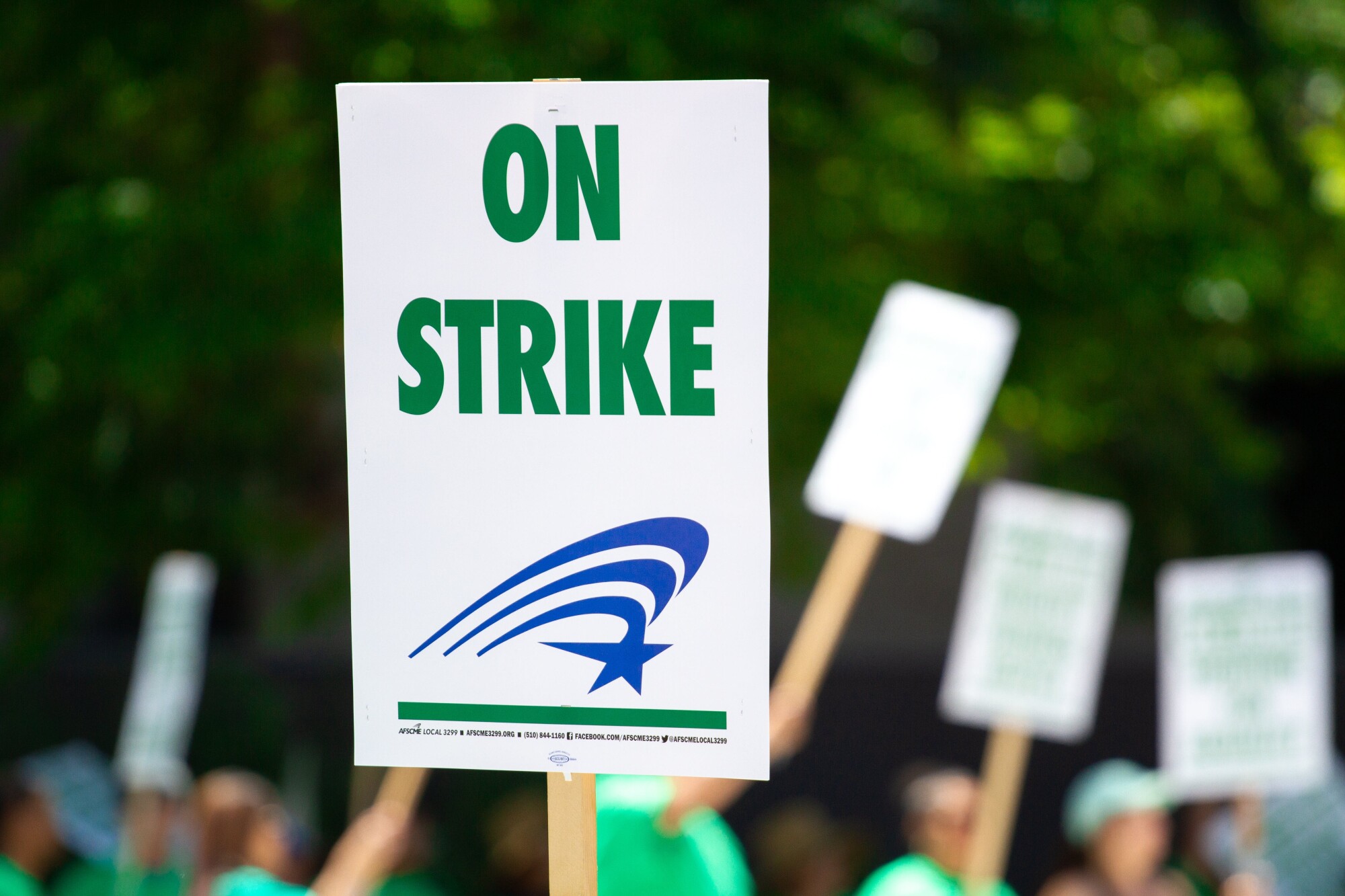Contact Us
Categories
- SCOTUS
- FTC
- Emotional Support Animals
- Service Animals
- Employee Agreement
- Remote Work
- Federal Trade Commission
- LGBTQ
- Minors
- United States Department of Justice ("DOJ")
- Arbitration
- Work from Home
- Workplace health
- Intellectual Property
- Trade Secrets
- Corporate
- Center for Disease Control
- Americans with Disabilities Act ("ADA")
- FFCRA
- Opioid Epidemic
- Occupational Safety and Health Administration (“OSHA”)
- COVID-19
- Families First Coronavirus Response Act
- H.R.6201
- Health Care Law
- IRS
- Paid Sick Leave
- Temporary Leave
- Treasury
- Coronavirus
- Worker Misclassification
- Labor Law
- Overtime
- Kentucky Unemployment Insurance Commission
- Sexual Harassment
- FMLA Retaliation
- Overtime Rule
- Employer Wellness Programs
- Employment Non-Discrimination Act ("ENDA")
- Genetic Information Nondiscrimination Act ("GINA")
- Independent Contractors
- Kentucky minimum wage
- Minimum wage
- Paid Time Off ("PTO")
- Sick Employees
- Wage and Hour
- ADA Amendments Act of 2008 (“ADAAA”)
- Department of Labor ("DOL")
- Employee Benefits
- Employee Handbook
- Employee Misconduct
- Employment Discrimination Laws
- ERISA
- Fair Labor Standards Act (FLSA)
- Family and Medical Leave Act (“FMLA”)
- Human Resource Department
- Kentucky Civil Rights Act (“KCRA”)
- National Labor Relations Act (NLRA)
- National Labor Relations Board (NLRB)
- OSHA
- Overtime Pay
- Pregnancy Discrimination Act
- Social Media
- Social Media Policies
- Title VII of the 1964 Civil Rights Act
- U.S. Department of Labor
- Union
- Young v. UPS
- Adverse Employment Action
- Amazon
- Americans with Disabilities Act
- Bring Your Own Device
- BYOD
- Civil Rights
- Compliance
- Department of Health and Human Services
- EEOC
- Employment Law
- Portal-to-Portal Act of 1947
- Security Checks
- Security Screening
- U.S. Equal Employment Opportunity Commission (“EEOC”)
- U.S. Supreme Court
- Uncategorized
- Volunteer
- Cloud
- Creech v. Brown
- EEOC v. Hill Country Farms
- Equal Employment Opportunity Commission v. Kaplan Higher Education Corp.
- Federal contractors
- Kentucky Labor Cabinet’s Occupational Safety and Health Program (KOSH)
- Lane v. Franks
- Micro-unit
- Non-exempt employees
- Specialty Healthcare & Rehabilitation Center of Mobile
- "Ban-the-box"
- 2013)
- Berrier v. Bizer
- Bullying
- Citizens United v. Federal Election Commission
- Compensatory time off
- Conestoga Woods Specialties v. Sebelius
- Consumer Credit Protection Act (“CCPA”)
- Crystalline Silica
- Davis-Bacon and Related Acts
- Drug-Free Workplaces
- Earnings
- Ehling v. Monmouth-Ocean Hospital Service Corp.
- Federal Stored Communications Act (“SCA”)
- Illness and Injury Reports
- Job applications
- Jury duty
- Kentucky Department of Workers’ Claims
- Kentucky Wage and Hour Act
- Maternity Leave
- McNamara O’Hara Service Contract Act
- Mine Safety and Health Administration ("MSHA")
- NFL Bullying Scandal
- Northwestern
- Payroll
- Permissible Exposure Level ("PEL")
- Sebelius v. Hobby Lobby Stores
- Senate Bill 157
- Shazor v. Prof’l Transit Mgmt.
- Violence
- Wage garnishment
- Web Content Accessibility Guidelines
- Whistleblower
- WorkSmart Kentucky
- At-will employment
- Chapter 11 Bankruptcy
- Chenzira v. Cincinnati Children’s Hospital Medical Center
- COBRA
- Companionship services
- Defamation
- Defense of Marriage Act (“DOMA”)
- EEOC v. Fabricut
- EEOC v. The Founders Pavilion
- Employee Forms
- Employee Hazards
- Employee of the Month Programs
- Employee Training
- Employer Group Health Plans
- Employer Mandate
- Employment Practices Liability Insurance
- Endorsements
- Federal Workplace Agencies
- FICA
- Form I-9
- Freedom of Speech
- Gatto v. United Airlines and allied Aviation Services
- Giant Food LLC
- Government employees
- Government shutdown
- Health-Contingent Wellness Programs
- HIPAA
- Home Health Care Workers
- KYSHRM 2013
- Litigation
- Madry v. Gibraltar National Corporation
- Mandatory vaccination policies
- Medical Exams
- Megivern v. Glacier Hills Incorporated
- Motivating Factor
- Obesity
- Online Account Protection
- Online Defamation
- Participatory Wellness Programs
- Pennington v. Wagner’s Pharmacy
- Pension Plans
- Play or Pay
- Private employers
- Record Retention
- Reference checks
- Sequester
- Severance Pay
- SHRM
- Small Business Administration (SBA)
- Social Media Ownership
- Supervisor
- Supplemental Unemployment Compensation Benefits
- Tangible employment actions
- Tax Refund
- Title VII retaliation cases
- Troyer v. T.John.E Productions
- U.S. Citizenship and Immigration Services
- Unfair Labor Practice
- United States v. Quality Stores
- United States v. Windsor
- University of Texas Southwestern Medical Center v. Nassar
- Vance v. Ball State University
- Contraceptive Mandate
- Crisis Management
- Employee Arrests
- Employee photographs
- House Labor and Industry Committee
- Job Description
- Job Requirement
- Kentucky’s Whistleblower Act
- KRS 391.170
- Labor and Pensions ("HELP")
- Municipal Liability
- Patient Protection and Affordable Care Act
- PhoneDog v. Kravitz
- Posting Requirements
- Public Sector Liability
- Religious Employer
- Right to Work Bill
- Social Networking Online Protection Act (SNOP)
- Social Privacy Laws
- Strategic Enforcement Plan (SEP)
- Telecommuting
- White v. Baptist Memorial Health Care Corp.
- Wilson v. City of Central City
- Workplace Politics
- Business Insurance
- Class Action Waivers
- Criminal Background Checks
- Employee Performance Reviews
- Employee Personnel Files
- Federal Arbitration Act (FAA)
- Federal Department of Labor
- Hiring and Firing
- Hosanna-Tabor Opinion
- Informal Discussion Letter (“EEOC Letter”)
- Insurance Coverage
- Kentucky Labor Cabinet
- National Labor Relations Act
- Retaliation by Association
- Salary Threshold
- Unemployment Benefits
- Workplace Discrimination, Harassment and Retaliation
- Communications Decency Act
- Employee Contracts
- Internet & Media Law
- Internet Defamation
- Non-Compete Agreement
- Uniformed Services Employment and Reemployment Rights Act
- USERRA
Amidst Unionization Trends, What Can Employers Do?
With strikes and unionization efforts appearing in recent news with great frequency, many employers are left wondering, “Am I next?” Though labor organizing creates a tough legal line for employers to walk, there are options to protect your business from union activity.
Labor organization has been prominent in the news recently, with large-scale strikes from the Screen Actors Guild and the Writers Guild of America stalling television and movie production, and the United Auto Workers strike capturing attention across the country. Additionally, unions are beginning to form in previously unorganized workplaces, such as Trader Joe’s, Starbucks, and Amazon. All of this amounts to a flurry of union activity that may be keeping employers up at night.
 This recent uptick in union activity can be connected to the recent developments in labor law from the National Labor Relations Board. Since President Biden took office in 2021, the Board has been issuing rulings that create a more labor-friendly legal environment. These include changes to employee handbook standards, the return of micro-bargaining units, and shortened union election timelines. The Board’s recent ruling in Cemex Construction Materials Pacific, LLC has also made significant changes to the organizing process by providing unions with multiple avenues to force bargaining without an election. First, the decision also ruled that if a union approaches and demands recognition from an employer (or makes a claim of majority support), then the employer has the burden of requesting an election from the NLRB within two weeks. If the employer fails to act and act quickly, the Employer may have bought themselves a union without an election. Second, the Cemex decision changed the threshold for the NLRB to issue mandatory bargaining orders. The NLRB can now require employers to recognize and bargain with a union if the employer commits an unfair labor practice in the election period. And with handbook, policy, and other rules changing by the day, employers could commit an unfair labor practice without even knowing they are doing so. Employers may be alarmed by these changes—and rightfully so.
This recent uptick in union activity can be connected to the recent developments in labor law from the National Labor Relations Board. Since President Biden took office in 2021, the Board has been issuing rulings that create a more labor-friendly legal environment. These include changes to employee handbook standards, the return of micro-bargaining units, and shortened union election timelines. The Board’s recent ruling in Cemex Construction Materials Pacific, LLC has also made significant changes to the organizing process by providing unions with multiple avenues to force bargaining without an election. First, the decision also ruled that if a union approaches and demands recognition from an employer (or makes a claim of majority support), then the employer has the burden of requesting an election from the NLRB within two weeks. If the employer fails to act and act quickly, the Employer may have bought themselves a union without an election. Second, the Cemex decision changed the threshold for the NLRB to issue mandatory bargaining orders. The NLRB can now require employers to recognize and bargain with a union if the employer commits an unfair labor practice in the election period. And with handbook, policy, and other rules changing by the day, employers could commit an unfair labor practice without even knowing they are doing so. Employers may be alarmed by these changes—and rightfully so.
However, there are steps employers can take to prevent the formation of unions in their workplace. First, employers must understand the reasons that employees unionize. Chief among these reasons are poor frontline supervision, uncompetitive pay and benefits, and inconsistent application of policies. Essentially, anything that impacts employee satisfaction and dissatisfaction can be a factor that leads to unionization efforts. Addressing those factors with preventative action is your first line of defense.
When you encounter signs of organizing efforts at your workplace, you cannot threaten, interrogate, intimidate, spy on, or make promises to employees. However, you can share facts, opinions, and experiences with unionization in an attempt to educate your workforce about the potential consequences of unionization. Share your preference for a direct working relationship frequently and explicitly—even when no organizing activity is occurring. Remember that while employees have the right to unionize, employers have the right to share their position and opinion.
Labor issues can feel overwhelming, and the constant barrage of news and changes can make it even worse. If you want to learn more about how to protect your workplace, contact McBrayer today.
 Claire M. Vujanovic, member with McBrayer, is located in the firm's Louisville office. Ms. Vujanovic's practice is concentrated in the areas of labor and employment law and includes NLRA compliance, drafting and reviewing employment manuals and policies, drafting severance, non-compete and employment agreements, and counseling clients related to overtime and wage and hour regulations, laws and claims and workplace discrimination. Ms. Vujanovic can be reached at cvujanovic@mcbrayerfirm.com or (502) 327-5400, ext. 2322.
Claire M. Vujanovic, member with McBrayer, is located in the firm's Louisville office. Ms. Vujanovic's practice is concentrated in the areas of labor and employment law and includes NLRA compliance, drafting and reviewing employment manuals and policies, drafting severance, non-compete and employment agreements, and counseling clients related to overtime and wage and hour regulations, laws and claims and workplace discrimination. Ms. Vujanovic can be reached at cvujanovic@mcbrayerfirm.com or (502) 327-5400, ext. 2322.
Services may be performed by others. This article does not constitute legal advice.

